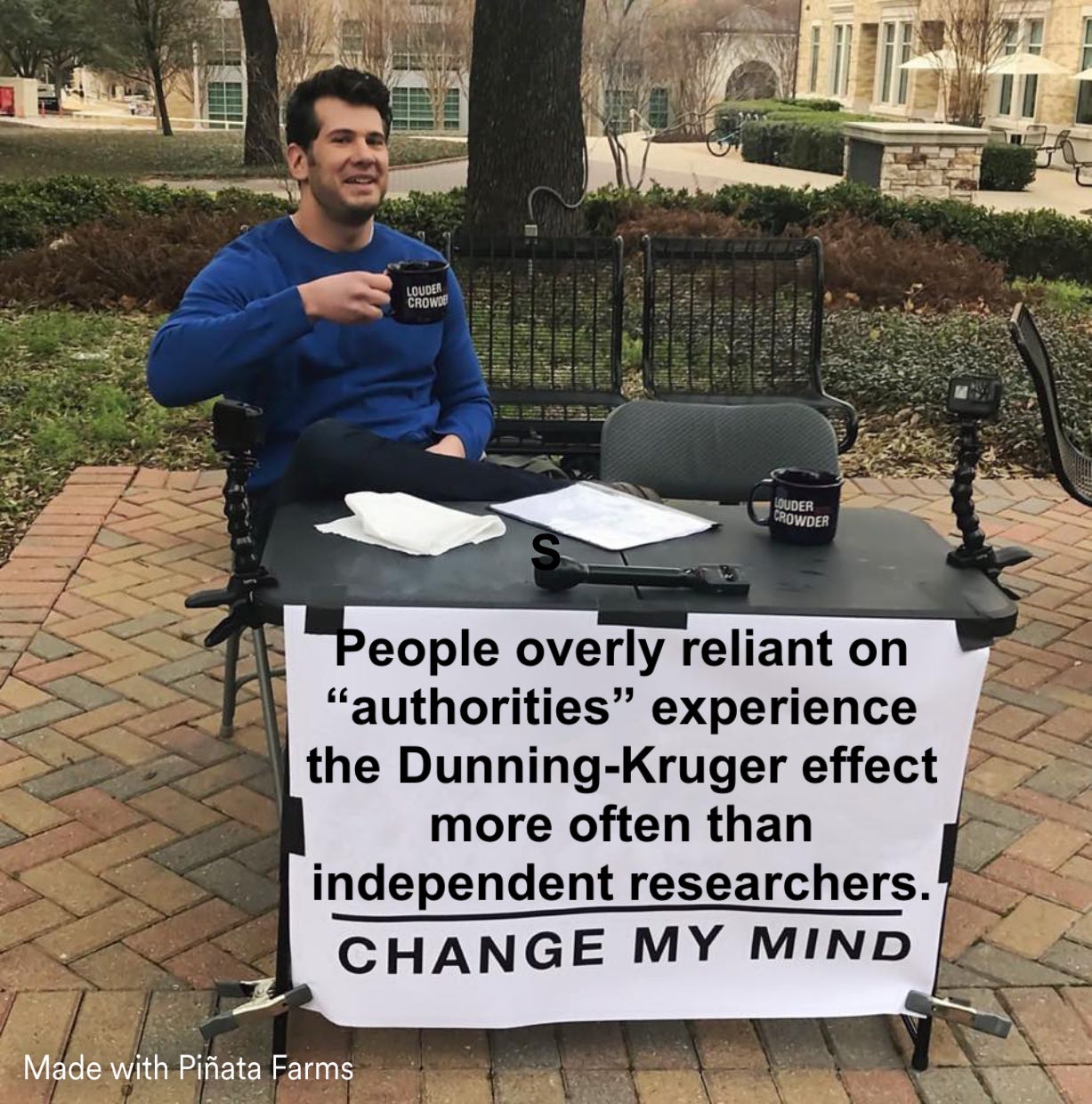The Dunning-Kruger Effect and the Irony of Misplaced Accusations
The Dunning-Kruger effect is a fascinating cognitive bias. It describes how people with limited knowledge or skill in a subject tend to overestimate their competence. Essentially, they lack the expertise to recognize their own gaps in understanding, which leads to an inflated sense of confidence.
But here’s an interesting twist: this bias can sometimes show up in unexpected ways during discussions, especially when authority figures are involved.
The Blind Trust Problem
In some cases, people who uncritically trust authority figures—be it experts, institutions, or popular opinions—assume that this trust makes them more knowledgeable. They believe that because their views align with "trusted" authorities, they hold the upper hand in any discussion.
This can lead them to accuse others—those who question or disagree with the authority in question—of suffering from the Dunning-Kruger effect. Ironically, this accusation often stems from the accuser’s own overconfidence, because their trust in authority prevents them from independently evaluating the topic.
In other words, they assume that anyone challenging the "approved" perspective must simply be too ignorant to understand it. But here’s the problem: blind trust in authority doesn’t necessarily equate to expertise. And dismissing someone as uninformed without engaging with the evidence is, in itself, a cognitive shortcut—a failure to think critically.
The Real Trap
The real trap of the Dunning-Kruger effect is that it can affect anyone. It’s not limited to one group of people or one side of a debate. Both those who overestimate their own knowledge and those who over-rely on the knowledge of others can fall victim to it.
To avoid this, we need to adopt a mindset of intellectual humility and curiosity. Here are three ways to avoid falling into the Dunning-Kruger trap:
Recognize and Question Your Own Knowledge Gaps: No one knows everything, and that’s okay. Admitting what you don’t know is the first step toward learning.
Critically Evaluate All Claims: Even trusted authorities can be wrong. Instead of blindly accepting what they say, examine the evidence yourself and remain open to alternative perspectives.
Engage in Respectful, Evidence-Based Discussions: Instead of assuming others are uninformed, seek to understand their point of view. A productive debate can clarify misunderstandings and reveal new insights.
A Humble Approach to Critical Thinking
So, the next time someone accuses someone else of suffering from the Dunning-Kruger effect, it’s worth pausing. Are they genuinely informed, or are they overestimating their understanding because they’re relying too heavily on someone else’s authority?
Critical thinking requires humility, curiosity, and a willingness to admit when we’re wrong. It’s not about “winning” debates or dismissing others—it’s about seeking the truth, even if that means questioning what we thought we knew.
What are your thoughts on this phenomenon? Have you seen it play out in conversations or debates? Let’s discuss.
#CriticalThinking #DunningKrugerEffect #CognitiveBias #QuestionEverything


